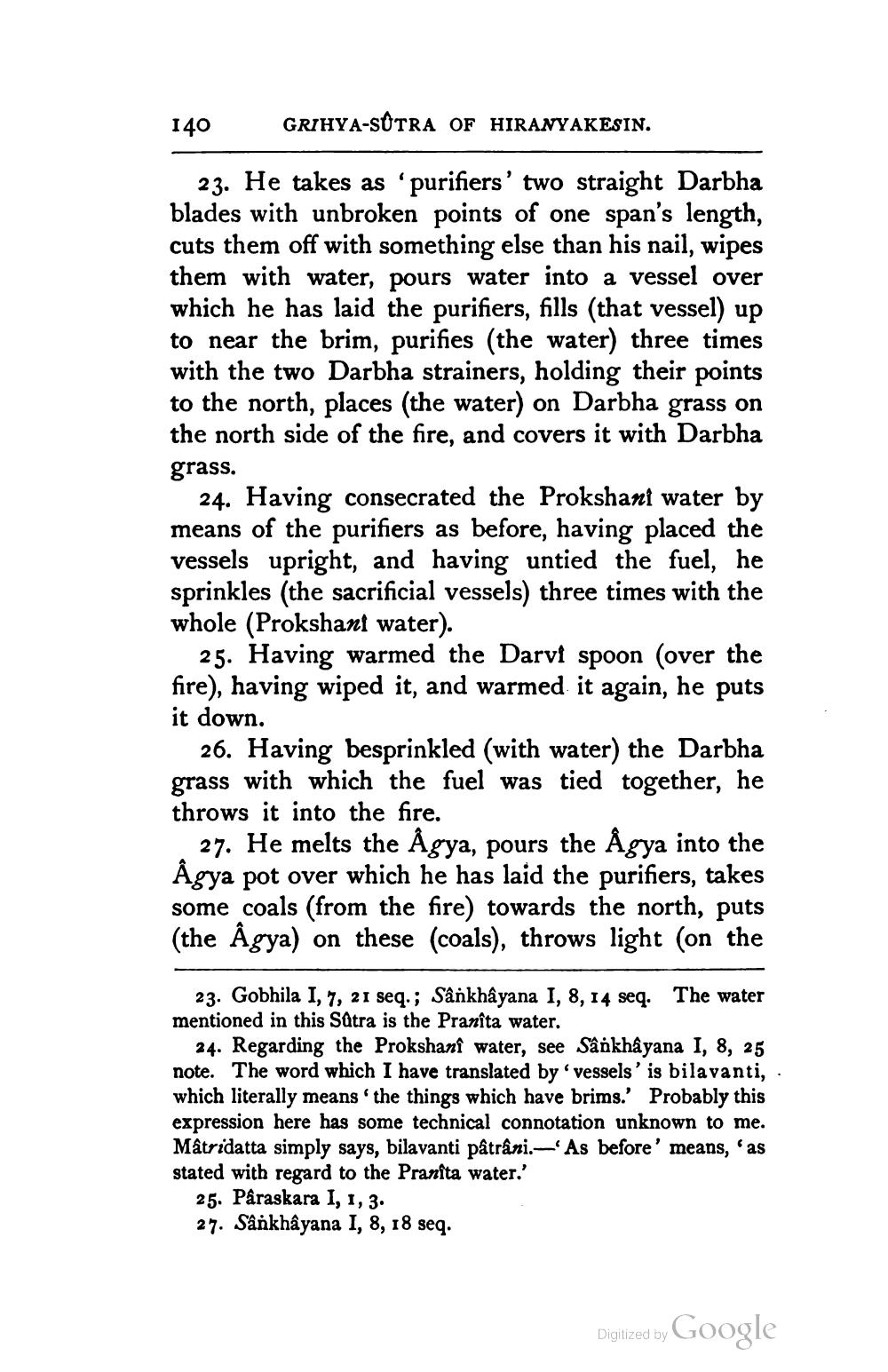________________
GRIHYA-SUTRA OF HIRANYAKESIN.
23. He takes as 'purifiers' two straight Darbha blades with unbroken points of one span's length, cuts them off with something else than his nail, wipes them with water, pours water into a vessel over which he has laid the purifiers, fills (that vessel) up to near the brim, purifies (the water) three times with the two Darbha strainers, holding their points to the north, places (the water) on Darbha grass on the north side of the fire, and covers it with Darbha grass.
140
24. Having consecrated the Prokshani water by means of the purifiers as before, having placed the vessels upright, and having untied the fuel, he sprinkles (the sacrificial vessels) three times with the whole (Prokshani water).
25. Having warmed the Darvi spoon (over the fire), having wiped it, and warmed it again, he puts it down.
26. Having besprinkled (with water) the Darbha grass with which the fuel was tied together, he throws it into the fire.
27. He melts the Âgya, pours the Âgya into the Agya pot over which he has laid the purifiers, takes some coals (from the fire) towards the north, puts (the Agya) on these (coals), throws light (on the
23. Gobhila I, 7, 21 seq.; Sânkhâyana I, 8, 14 seq. The water mentioned in this Sutra is the Pranîta water.
24. Regarding the Prokshanî water, see Sankhâyana I, 8, 25 note. The word which I have translated by 'vessels' is bilavanti, which literally means 'the things which have brims.' Probably this expression here has some technical connotation unknown to me. Mâtridatta simply says, bilavanti pâtrâni.-'As before' means, 'as stated with regard to the Pranita water.'
25. Pâraskara I, 1, 3.
27. Sânkhâyana I, 8, 18 seq.
Digitized by
Google




